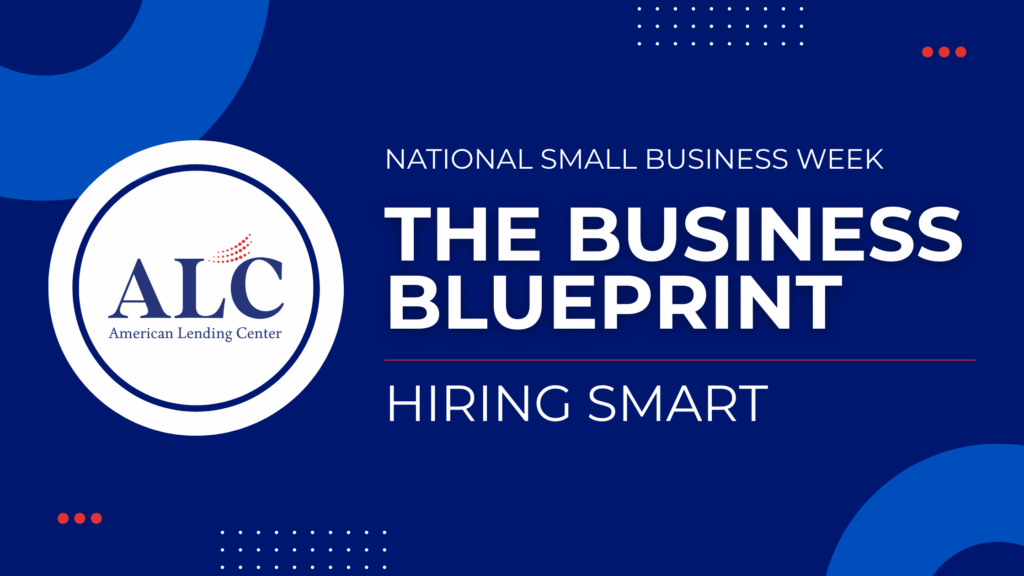Hiring Smart: Navigating California’s Labor Law and Talent Landscape

As a small business owner in California, you’re not just trying to grow your business, you’re also navigating one of the most complex employment law landscapes in the country. With limited time, resources, and sometimes no formal HR department, staying compliant and hiring the right people can feel overwhelming. After developing HR departments for three small companies, I’ve learned that the real game changer in HR is first ensuring understanding of what compliance means for your business, why it is important, who needs to be aware of it, what steps you need to take to uphold it, and how it ties to your hiring strategy.
Human Resources (HR) isn’t just about hiring or firing. It’s the part of your business that manages the people who keep it running. HR covers recruiting and hiring, onboarding and training, payroll, benefits, performance management, handling conflict and complaints, and compliance with labor law.
Even if you don’t have a formal HR representative, if you have employees, you are already doing HR. Whether it is compliant or not is the real question.
What Does Compliance Mean for Your Business?
Compliance simply means following the rules, specifically, the state and federal labor laws that are designed to protect both you and your employees. In California, this includes things like paying the correct minimum wage, providing required meal and rest breaks, tracking and paying overtime properly, offering paid sick leave, and ensuring you have anti-discrimination and harassment policies in place. It also means keeping accurate records, like timecards and payroll documentation, and correctly classifying workers as either W-2 employees or 1099 independent contractors.
Depending on your industry, compliance may also include following workplace safety standards, such as OSHA regulations in construction, food safety in restaurants, or HIPAA in healthcare. The details of what compliance looks like can vary, but the concept is the same: are you following the laws that apply to how you treat and manage your workers?
Why is it Important?
Many small business owners don’t realize they’re out of compliance until it’s too late. Non-compliance isn’t just a paperwork issue, it can have real, lasting consequences for your business. This includes costly lawsuits, government fines and penalties, a damaged reputation, and the kind of employee burnout and turnover that’s hard to recover from.
Some of the most expensive fines come from something as simple as meal and rest break violations or inaccurate timecards. For example, failing to provide proper meal breaks can result in one hour of premium pay per violation, per day, per employee, which adds up quickly. If this is happening over weeks or months, those fines can run into tens of thousands of dollars, even for a small team.
Who Needs to Know It?
In short, everyone. However, it is essential that all members of management understand the basics of HR policies and employment law. Managers are often the first point of contact for employees, and their decisions can directly impact employees, not just in terms of morale or productivity, but in serious cases, it can lead to legal action or even compromise employee safety.
There are specific legal requirements and steps that must be followed in different workplace situations and these processes are in place to protect both the business and its employees. They help ensure that employers are doing their due diligence and that employees know what to expect from their workplace when something goes wrong or when they need support.
For example, an employee should know what to expect if they report harassment, request a leave of absence, or have a wage concern. Without clear protocols, they may not feel safe speaking up or worse, their concerns may go unaddressed in ways that put themselves and the company at risk.
What Steps Can You Take to Uphold It?
Bottom line, you need a professional. If you’re not in a position to hire a full-time HR professional, and many small businesses aren’t, that doesn’t mean you’re on your own. There are plenty of affordable and accessible resources that can help you stay informed and compliant. Here are a few practical steps you can take:
• Outsource HR support: Many firms offer part-time or on-demand HR services that can help with everything from writing policies to handling employee relations issues.
• Use HR software: Platforms like Gusto, BambooHR, and Rippling can automate payroll, time tracking, onboarding, and compliance reporting, saving you time and reducing errors.
• Stay educated: Sign up for updates from reliable sources like the California Department of Industrial Relations, SHRM, or your local chamber of commerce. Many offer webinars, newsletters, and live Q&A sessions to stay up to date on new and emerging HR changes.
• Document everything: Keep your employee handbook, workplace policies, and all signed forms up to date. Good documentation protects your business and gives your team clear guidance.
Tying Compliance to Hiring Strategies
When you’re building your team, it’s not enough to just hire employees who are skilled at their jobs, you also want to ensure that they have the capacity to see the bigger picture, especially in a small business environment where every team member plays a crucial role. This becomes even more important if they’re in a leadership position, where their decisions can directly affect the company’s compliance and workplace culture. Look for candidates who are detail-oriented, well-communicated, empathetic, and creative. These traits are essential not only for day-to-day tasks but also for managing HR issues, maintaining compliance, and fostering a positive work environment. Compliance is Protection. Smart Hiring is Strategy.

Cindy Morales
Director of Human Resources
Cindy Morales is a strategic HR leader known for building and shaping HR departments from the ground up. She holds a Bachelor’s Degree in Business Administration with a concentration in Human Resources from California State University, Fullerton. Her versatility spans construction, banking, real estate, and food service — adapting HR practices to meet the unique demands of each industry.
Cindy currently serves as the Director of Human Resources at American Lending Center, where she leads HR operations and drives people-focused solutions that align with business goals.
About American Lending Center: A Financial Times (FT) Americas’ Fastest Growing Company
American Lending Center LLC (ALC), a mission-driven California-regulated lender, is a licensed SBA 7(a) and SSBCI lender. Together, ALCH and ALC have supported the creation or retention of over 140,000 jobs in the U.S. economy, underwriting impactful projects that foster economic growth.
American Lending Center Holdings (ALCH) manages 14 EB-5 regional centers sponsoring projects across the United States. Since 2009, ALCH has raised EB-5 capital for over 100 projects in 31 states including I-956F approvals from USCIS of 28 projects. ALCH has been featured on the Inc. 5000 list of “Fastest-Growing Private Companies in America” for five consecutive years (2020–2024) and was also ranked among “America’s Fastest Growing Companies” by Financial Times in 2021, 2022, 2023 and 2025.
Follow American Lending Center on LinkedIn, Facebook, Twitter, and YouTube.
© American Lending Center 2025